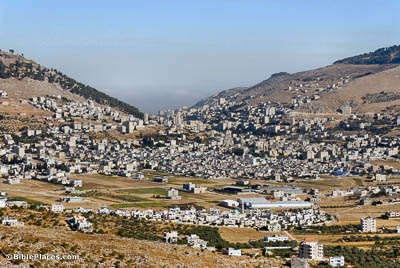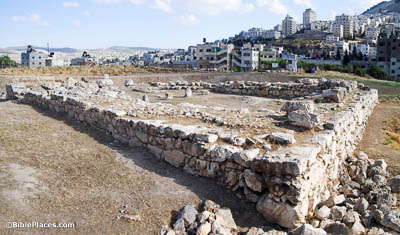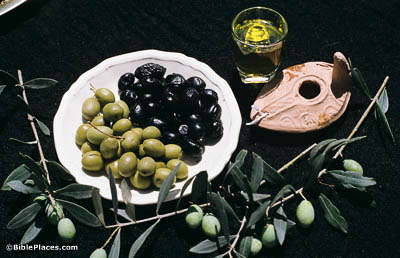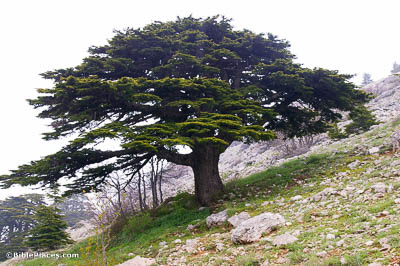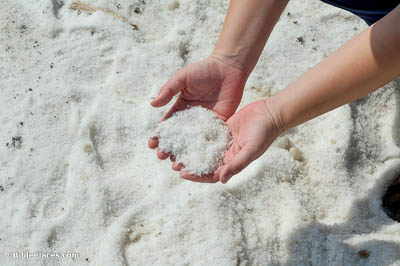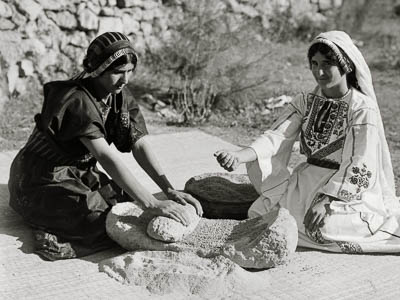Abimelech the son of Jerubbaal went to Shechem to his mother’s relatives (Judges 9:1).
The ancient city of Shechem is nestled between Mount Gerizim on the south and Mount Ebal on the north. Although not easily defended, the city is well-situated because of the fertile valleys, springs, and communication routes surrounding it. Today it is surrounded by the modern city of Nablus.
